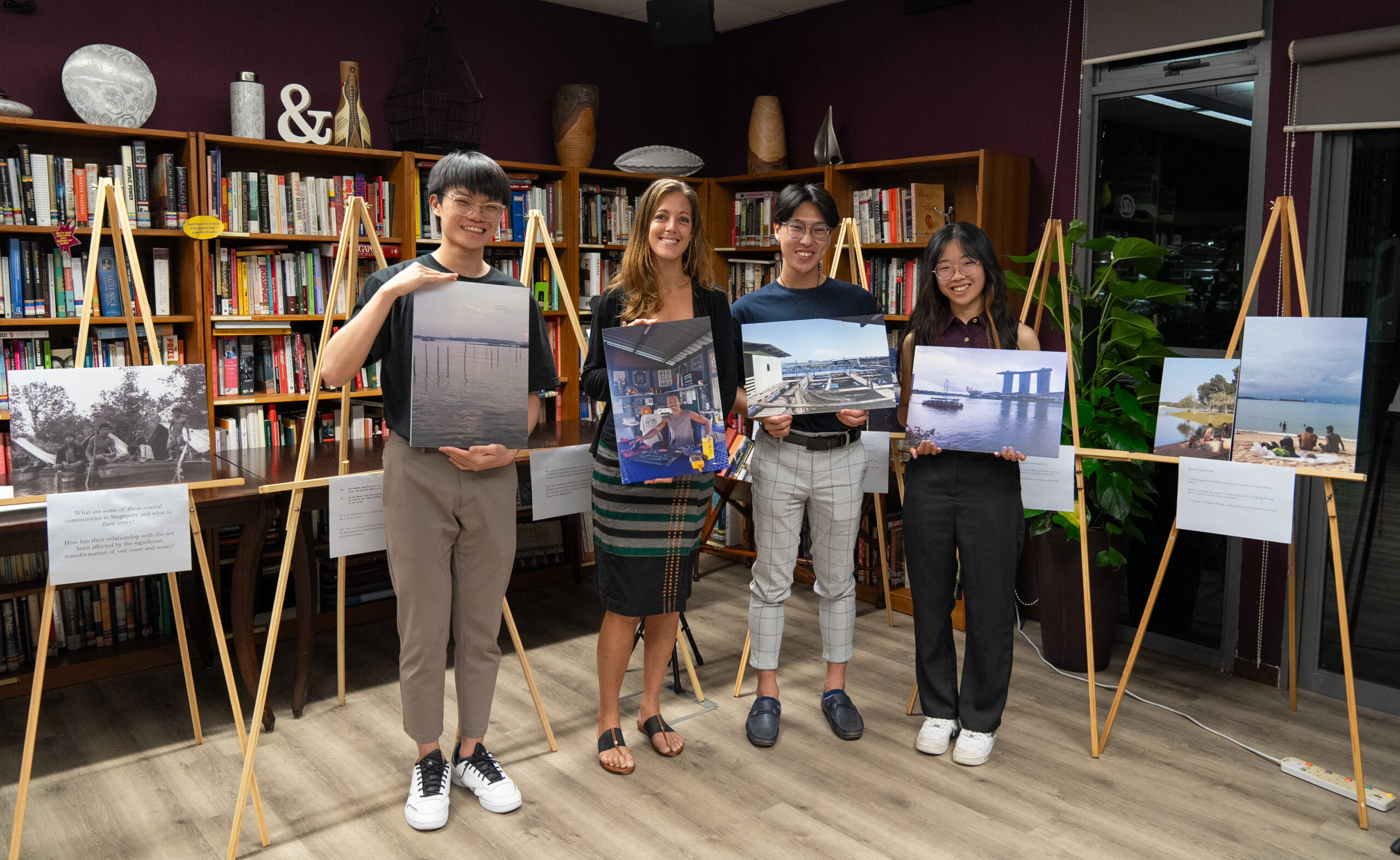Senior Learning Experience (SLE) 3
The Tembusu Senior Learning Experience Project (SLE 3) is a certificate-bearing special programme designed for Year 3 Tembusu students who have time to commit to the course. It is tied to College residency and requires weekly work. The SLE 3 is project-based, supporting students developing knowledge and skills in an area related to research in which the college has strengths and expertise. It also supports students developing skills relevant for the workplace: teamwork, independent inquiry, problem-solving, interdisciplinary dialogues, critical reflection and clear expression in speech and words. Students will use the techniques of inquiry and communication that they developed in prior Tembusu seminars in an interdisciplinary context. As students are involved in cutting-edge research projects, their work can potentially contribute to broader academic knowledge and innovation. They will present the results of their project to their peers and juniors at an end-of-semester event which Year 3 students will organise, for the learning community’s benefit.
The Fairytale Romance: Exploring how
Shrek navigates and triumphs over a world of unjust conventions

Supervisor: Dr John Wee
AY24/25 Semester 1
Through various aspects of storytelling, our group analysed the narrative structure of Shrek in order to explain how this iconic movie defies traditional fairytale conventions to create a modern fairytale. There will be an in-depth themes and scene analysis to push for our thesis: Shrek’s narrative shows that defying rigid norms paves the way for inclusivity, acceptance, and diversity.
~ Sam Nicole Elizabeth, Suen Wing Lam, Tan Yin Xuan Bernice, Patrick Cianata
The SEA is Us

Supervisor: Dr Celine
AY23/24 Semester 2
The sea holds profound significance in the narrative of human existence. It is not merely a body of water but a conduit of life, culture, and commerce.
The decision to explore Singapore’s coastal development stems from recognising the pivotal role the sea has played in the nation’s socio-economic development and its impact on Singaporeans’ relationship with the sea.
To examine how different communities perceive the evolution of Singapore’s coastal spaces, we conducted ethnographic research on three distinct groups to unravel the intricate tapestry of experiences and perspectives that these communities hold towards Singapore’s coastal spaces.
We conceptualised a photo exhibition as a medium of empathy and connection to amplify the voices and experiences of the communities we encountered.
~ Choy Kheng Yan, Mau Ze Wei, Wee Chin Ray Edric
Interrogating the Beautiful: Discourses on Beauty and Interventions from the Pageant Culture in the Phillipines

Supervisor: Dr Gene Navera
AY23/24 Semester 1
Interrogating the Beautiful is based on an ongoing project on beauty pageantry and fan culture in the Philippines. This SLE project critically examines the [Filipino] fascination with beauty queens and beauty pageants. Crucially, the project has reviewed feminist literature, both global and Filipino, to reconstruct and interrogate the academic conversation on beauty pageantry. Are pageants relevant? Are they anti-women or empowering? Aside from this literature review, this SLE project employs Feminist Critical Discourse Analysis to unpack excerpts from Pia Wurtzbach’s interview on her experience as the 3rd Filipina Miss Universe winner. Interrogating the Beautiful thereby confers a glimpse into the intersection between beauty pageantry and feminism. The project aims to propose a possible extension for this project using relevant theoretical perspectives from discourse studies and related disciplines.
~ Dayna Cardona Naidu
Singaporean Perspectives of AI Futures

Supervisor: Dr Connor Graham
AY23/24 Semester 1
What do Singaporeans think the future of AI will bring? How do they associate these visions with different ideal and nightmarish worlds? How do these perceptions in Singapore compare to those of other countries’ citizens and states? This project studies different conceptions of ideal societies by surveying how ‘utopia’ has been theorised and described in literature. Secondly, it investigates how utopias are associated with AI technology now and in the future by Singaporean citizens. To achieve this, the project firstly analyses the utopias present in Smart Nation Initiative.It, secondly, develops a qualitative study protocol that operationalises the concept of a utopia using semi-structured interviews. The project aims to pilot this qualitative study design and experiment with the use ofGenerative AI in data analysis to provide initial insights on how widely held certain utopias are and what configurations of different utopias or profiles are prevalent in Singapore. The project will make recommendations for a larger cross-cultural study being conducted with the Max Planck Institute.
~ Ayushi Lahiry
Volition and the Insanity Defence in Singapore

Supervisor: Dr Mike Grainger
AY23/24 Semester 1
In 2020, Singapore criminal law incorporated a volitional test in the defence of unsoundness of mind (or “insanity”). Under this new rule, a defendant has a defence if he is “completely deprived of the power to control his actions”. Yet the nature of “volition” or “control” and its relationship to moral and legal responsibility is a contentious matter. This project aims to contribute to an understanding of the proper role of mental illness in grounding a criminal defence, by conducting a literature review focussed on two leading views of the moral basis of that defence. Based on what we learn from this literature review, we will examine whether the volitional test for unsoundness of mind should be retained in its current form.
~ Loke Jee Kuen, Sherwin Lee Le Jie

